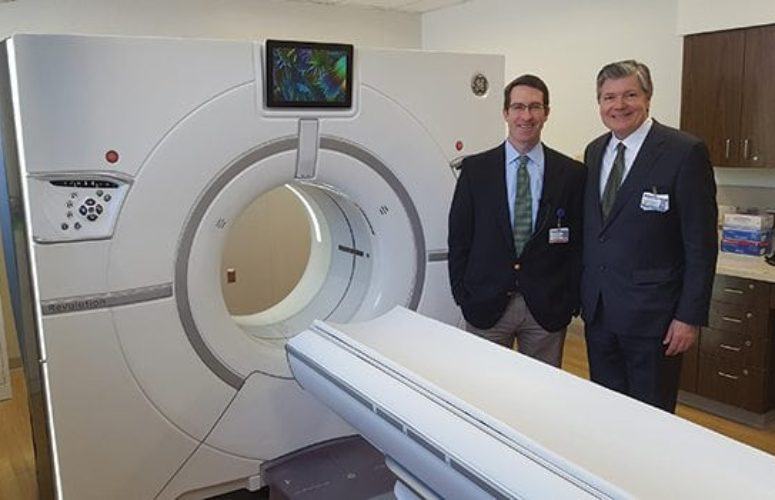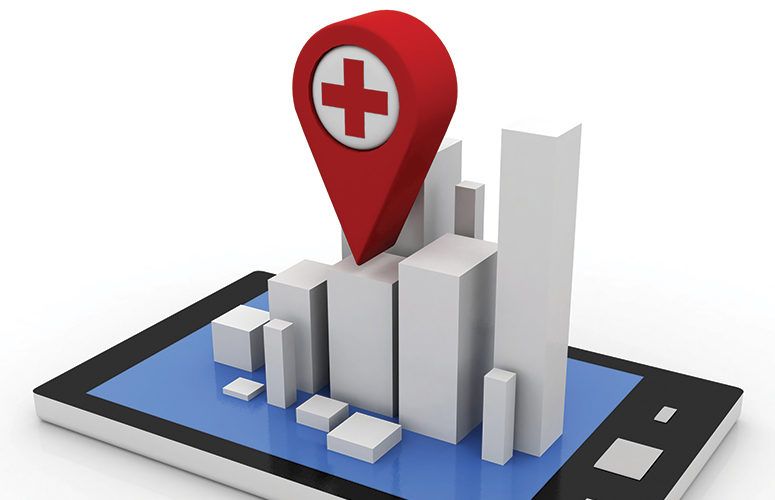
New Jersey is an Innovation Hub for Medical Technology
Our state is the unique home to some of the most high-tech advances in healthcare today.
By Jim Pytell, Assistant Editor On Jun 26, 2017The exponential growth of technology doesn’t stop. Human beings’ innate desire and need to innovate lead to inventions that – unfathomable just a few years prior to their creation – have become so commonplace today that they are taken for granted in a short timeframe. These sweeping advances that alter how society functions are felt in varying degrees in all industries. The medical field, specifically in New Jersey, has seen, first-hand, the benefits that innovation has on nurturing, strengthening and saving lives.
New Jersey is home to some of the best hospitals in the country, is a hotbed for innovation and has a strong foundation of top research centers and university care centers scattered throughout the region. In addition to these hospitals are medical technology companies that work to solve problems within the medical industry by figuring out ways to best utilize the most cutting-edge technology available.
“I think we are moving towards more and more integration,” Al Lauritano, business development director, R&D management for BD Technologies, says. “Take Uber as an example. New technology did not have to be invented to drive Uber – that was simply an integration [of existing technology]. Right now, we are in an integration phase.”
Lauritano points to artificial intelligence (AI) as an example of an existing technology that will be vital to the healthcare industry going forward, potentially giving hospitals the ability to understand which patients have better outcomes than others and why, and then affording them the ability to come up with better treatment regiments and protocols.
“The technology can be there, but if it is not optimized, then you start coming against gaps,” says Matt Coppola, manager, public relations at BD. “A lot of what BD is trying to do is taking our [existing] technologies and identifying where these communication gaps live within a hospital setting.”
Recently, BD acquired Murray Hill-based medical tech firm C.R. Bard Inc. for approximately $24 billion.
“Combining with Bard will accelerate our ability to offer more comprehensive, clinically relevant solutions to customers and patients around the globe, creating a strong partner for healthcare providers who are increasingly focused on delivering better outcomes at a lower total cost,” BD Chairman and CEO Vince Forlenza said in a statement regarding the deal.
It is important for healthcare providers to work closely with medical technology firms in order to stay on the cutting edge of what is relevant in the field.
Inspira Health Network’s board recently approved a $50-million investment in Cerner, one of the top health information technology solutions companies in the US. The deal will be finalized and implemented by February 2018.
“Our goal in selecting Cerner is to have all of the information that we have on you in one database,” Inspira Health Network President and CEO John DiAngelo says. “If you come into any one of our sites, your data will be accessible to anyone who has to take care of you within our health system.”
These “handoffs” from one facility to another are a big part of patient care, and, in the past, when a patient had to be transferred from, say, an urgent care center to a surgery center, tests would have to be re-run since information would only be shared between similar facilities (surgery centers shared with surgery, urgent care shared with urgent care, etc.).
An additional benefit of partnering with Cerner, according to DiAngelo, is the implementation of interactive, digital monitors in each patient room, allowing their information to be visible on screen both inside and outside the room, as opposed to using white boards. This technology will be used in Inspira’s newest planned facility, Inspira Medical Center Mullica Hill, as well as in its existing ones.
“We are looking for patient engagement in their own care, but we are looking to do it digitally,” DiAngelo adds.
For example, Inspira’s patient mobile app is helping to nearly eliminate physically sitting in a waiting room in all eight of the network’s urgent care centers. The app allows patients to check in at home, and receive a text of when to leave their house so they arrive at the facility at the time that they are being called in to receive care.
Hospital networks such as Inspira are also constantly looking at potential future implementations for technology.
“One of the things we are looking at is wearable technologies [like Fitbit] and how we can use the information that is tracked and plug it into a patient’s medical record,” DiAngelo says. “A case would be if you have congestive heart failure (CHF). If you have wireless information and you are weighing yourself and tracking your health at home, that information would transfer to us in real time and we would know right away if you are going to have a problem.”
This type of digital connectivity between patient and physician would allow patients to get help before something goes wrong and it is too late.
In addition to an emphasis on patient engagement and improvements in preventative care, some of the newest technologies seen in the medical field today were first implemented, and in some cases are unique to, New Jersey.
For example, Robert Wood Johnson University Hospital in New Brunswick is the first hospital in the state to offer the Leksell Gamma Knife Icon, the most precise stereotactic radiosurgery system (SRS) currently available to patients diagnosed with primary and secondary brain tumors, vascular disorders, refractory pain, and movement disorders.
One of the biggest leaps in gamma knife technology over the years had been lowering treatment time – the importance of which is twofold, according to Shabbar Danish, MD, FAANS, chief of neurosurgery for Rutgers Cancer Institute of New Jersey.
“The issue of lower treatment times is [certainly] patient comfort, but also unnecessary radiation exposure,” he says. “When those gates are open and the radiation is being emitted, the patient’s body is being exposed to all of that.”
Danish adds that recent jumps from older gamma knife models have reduced radiation exposure to the rest of the body by almost 1,000 times.
“The latest version of the gamma knife, the Icon, allows you to do an onboard CT scan,” Danish says. “Now, things that require steep dose gradients [something you can’t get on other machines], but also require fractionated treatment, can be done. This is something that wasn’t possible in the past.”
The Icon also provides a frameless solution for patients, so, when applicable, they can undergo treatment without wearing a mask.
Another piece of exciting innovation in New Jersey can be found at Saint Barnabas Medical Center in Livingston, which boasts the first and only 256 Slice General Electric (GE) Revolution CT Scanner in the state.
This revolutionary scanner dramatically reduces the amount of time a patient is being physically scanned, according to Christopher Freer, DO, chairman of the emergency department. He adds, “You can do a CT of the chest or abdomen in just two seconds.”
The machine is very quiet and uses a larger opening than older CT scanners, making the patient experience much more comfortable. Freer says that the quality of the imaging produced is much better, and that the machine uses the lowest possible radiation dose.
“We are proud to be the first medical center in the state to offer this advanced and revolutionary CT scanner,” Stephen P. Zieniewicz, FACHE, president and CEO, Saint Barnabas Medical Center, says. “The addition of this superior technology emphasizes our commitment to ensuring our physicians and patients have access to the most innovative technologies that facilitate the safest quality care for our patients and their families.”
Innovation will continue to be at the forefront of every healthcare provider’s mission moving forward in the state. Recently, Hackensack Meridian Health launched a new brand, which focuses on its commitment to innovation, research and forward-thinking healthcare initiatives.
“Our new brand is just another step toward truly becoming one network that is elevating the standard of healthcare not only in New Jersey, but nationwide,” says Robert C. Garrett, FACHE, co-CEO, Hackensack Meridian Health. “Our team is redesigning how care is delivered, creating long-term sustainable solutions not only for our customers and patients, but for our care team as well. Our tagline, Life Years Ahead, reflects our commitment to pushing the boundaries of medicine to reach new heights of research and innovation.”
When asked why New Jersey is such an innovative location, Freer says that competition plays a big role. “If you’re the only show in town for 100 miles, I don’t know if it pushes you as much,” he says. “The consumers have choices, so you have to stay ahead of the ‘guy next door’.”
Healthy competition from a dense and diverse population is one of many reasons why pioneering innovation spans many industries in New Jersey, and the medical field is certainly no exception. The work being done in the state by hospitals and research firms to stay on the cutting edge of technology – through finding new ways to utilize current innovations and being the first to implement state-of-the-art machines – is saving lives every day.
Related Articles:






